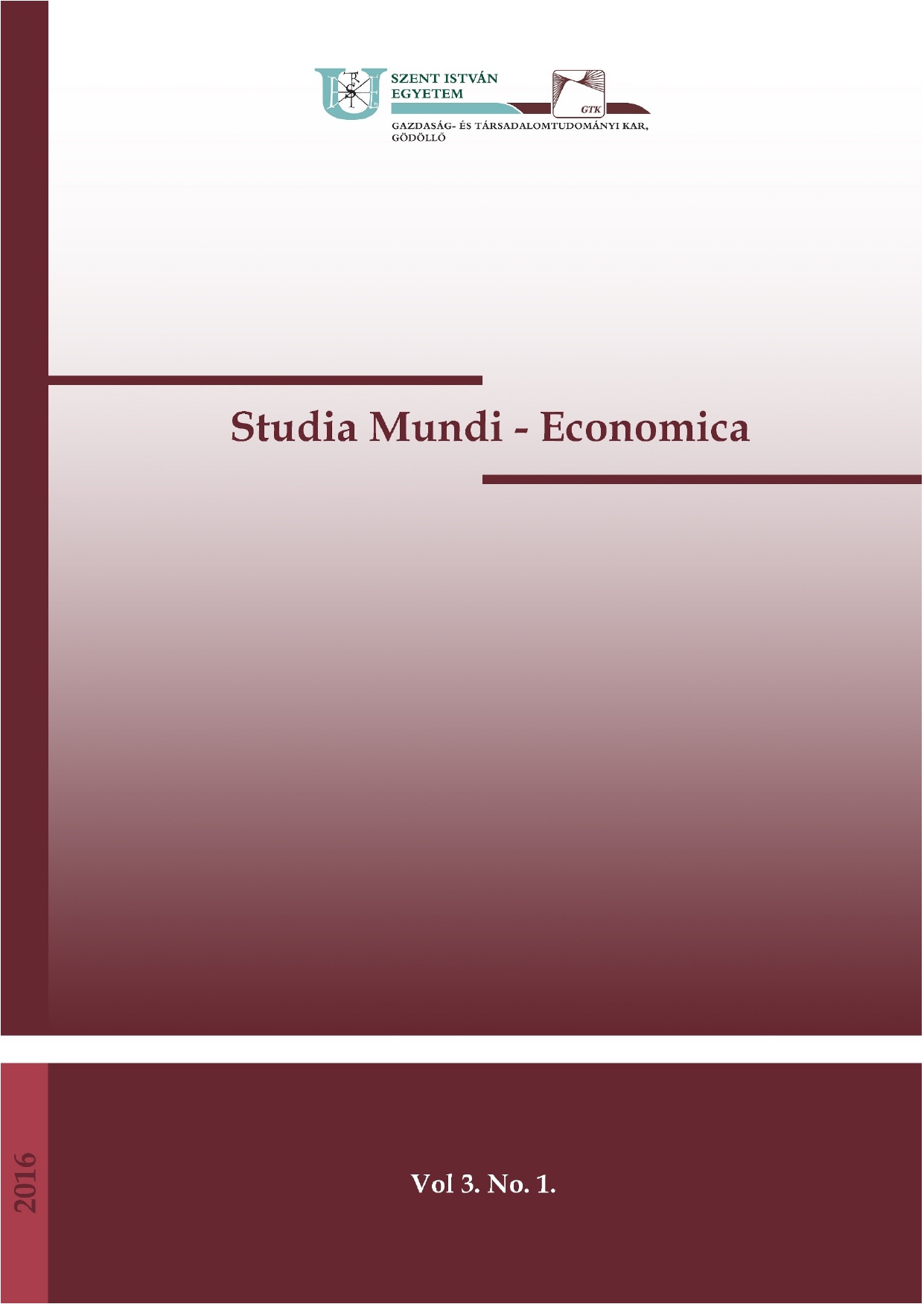The reassessment of personal competencies in human resources management and in business-oriented higher education
DOI:
https://doi.org/10.18531/Studia.Mundi.2016.03.01.167-182Kulcsszavak:
(personal) competencies, labour market, higher educationAbsztrakt
The timeliness of our topic is proved by the fact that nowadays human resources play an indispensable part in the resource system of economic organizations. Our paper examines the personal competencies that play a vital role in corporate efficiency, competitiveness and success. Moreover, we also illustrate how this role has been changing in time. One of the objectives was to create and test a competency structure tailored to the Hungarian labour market situation.
Hivatkozások
Akkermans, J.- Schauferi, W. B.-Brenninkmeier, V.- Blonk, R. W. B. (2013): The role of career competencies in the Job Demands-Resources Model. Journal of Vocational Behaviour, 83(2013) 356-366. p.
Bellier, Jean-P. (1998): Kompetenciák, képzés és alkalmazhatóság. Szakképzési Szemle, 14 (2) 12-20. p.
Boyatzis, R. E. (1982): The Competent Manager: A model for effective performance. New York: Wiley. 328 p.
Cadin, L.-Guérin, F.-Pigeyre, F. (2012) Gestion des ressources humaines. Pratique et éléments de théorie. 3éme édition.Paris: Dunord. 726 p.
Csiszárik-Kocsir, Á. – Medve, A. (2009): Beszédes számok – avagy a hazai közoktatás finanszírozási és hatékonysági jellemzői a nemzetközi eredmények tükrében, Humánpolitikai Szemle, 5. szám 45.-58. old.,
Csiszárik-Kocsir, Á. – Fodor, M. – Medve, A. (2012): The Effect of the Sub-Prime Crises on Workplace Safety in Hungary Based on a Primary Research, International Journal of Social Sciences and Humanity Studies, Vol 4. No. 2., 11-25 pp.
Dalton, M. (1997): Are competency models a waste? Training and Development, October 1997. 46-49. p.
Defining and Selecting Key Competencies (DeSeCo). Edited By Dominique Simone Rychen, Laura Hersch Salganik, 2001.
Herzberg, F. (2003): One more time: How do you motivate employees. Harvard Business Review, 81 (1), 3-11. p.
Lazányi, K. (2012): Study for nothing? Literature overview of labour market opportunities for individuals with tertiary education. In: Michelberger, P. (szerk.) FIKUSZ 2012 : Symposium for young researchers: Budapest, Óbudai Egyetem.
Lazányi, K. (2013): Mi áll a munkaerő-piaci kereslet és kínálat kiegyensúlyozatlanságának hátterében?: A közgazdászok helyzetének bemutatása. Munkaügyi Szemle 57:(3) pp. 50-62.
Lazányi, K. (2015): What is the Role of Higher Educational Institutions in Managing their Students’ Competencies? Science Journal of Business and Management 3:(1-1) pp. 46-52.
McClelland, D.C. (1973): Testing for competence rather than for „intelligence”. American Psychologist, 28, 1-14. p.
Spencer, L.M. - Spencer, S. M. Jr. (1993): Competence at Work: Models for Superior Performance. Boston: Wiley. 384 p.
Ulrich, D. - Allen, J.-Brockbank, W.-Younger, J.-Nyman, M. (2009): HR transformation. Building Human Resources from the Outside In. New York: McGrowHill. 256 p.
Letöltések
Megjelent
Folyóirat szám
Rovat
License
Copyright (c) 2016 Erika Varga; Helga Boda; Kinga Ilona Bárdos

This work is licensed under a Creative Commons Attribution-NonCommercial-NoDerivatives 4.0 International License.
A folyóirat Open Access (Gold). Cikkeire a Creative Commons 4.0 standard licenc alábbi típusa vonatkozik: CC-BY-NC-ND-4.0. Ennek értelmében a mű szabadon másolható, terjeszthető, bemutatható és előadható, azonban nem használható fel kereskedelmi célokra (NC), továbbá nem módosítható és nem készíthető belőle átdolgozás, származékos mű (ND). A licenc alapján a szerző vagy a jogosult által meghatározott módon fel kell tüntetni a szerző nevét és a szerzői mű címét (BY).






